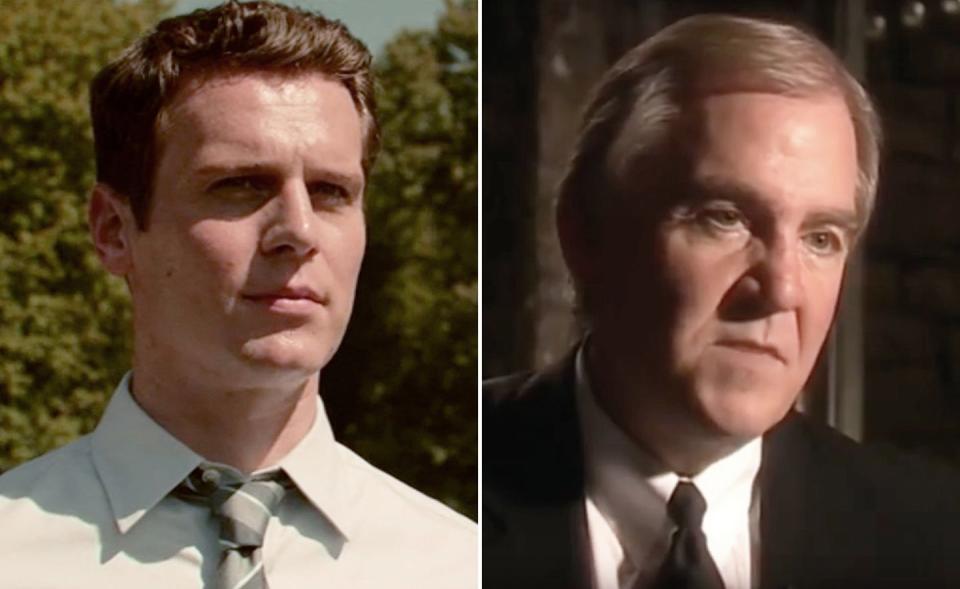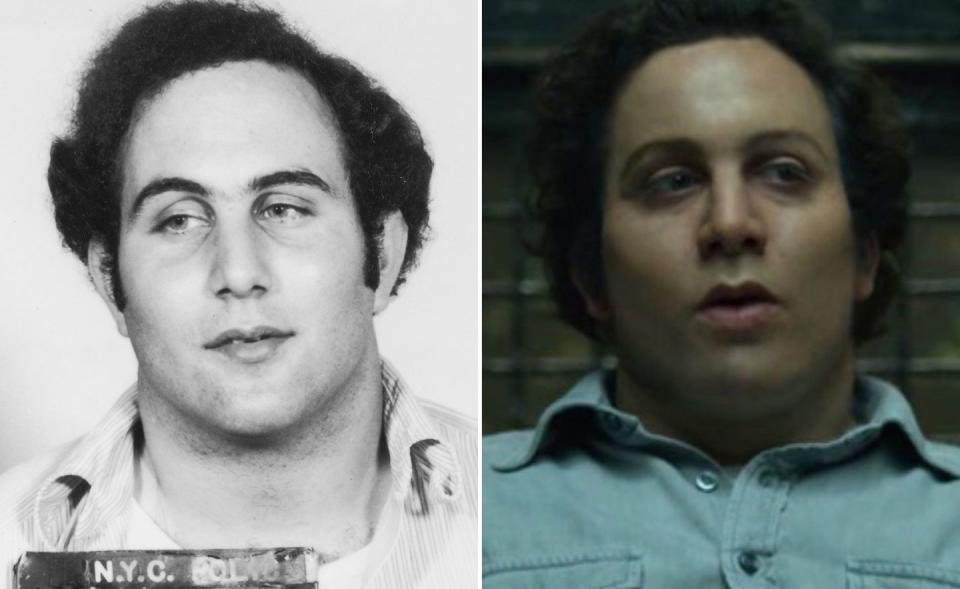One important Mindhunter moment didn't actually happen in real life

That Netflix's Mindhunter is based on true events is not new information, but how much of it is fact and where does the fiction come in?
The true-crime drama follows FBI agents Holden Ford (Jonathan Groff) and Bill Tench (Holt McCallany) as they come face-to-face with some of America's most notorious serial killers in a bid to interview them and learn from their behaviour.

The series is based on the non-fiction book of the same name, co-authored by real-life former agent John Douglas, which documents the founding of the FBI's Behavioural Science Unit.
In an exclusive interview with Digital Spy, Douglas reveals one aspect of Mindhunter that isn't quite true. Fast-forwarding back to the end of the first season (released on Netflix in 2017), he spoke to us about the infamous 'grab' scene between Ed Kemper and Holden Ford (the character actually inspired by Douglas).

Related: Mindhunter's Ed Kemper – his true story, according to the FBI agent who interviewed him
"Kemper would never have done that," he confirms to us, before giving us a much deeper insight into Kemper, who was convicted in 1973 for 10 killings which included his own grandparents and his mother, and what he was actually like to interact with in real life.
What does have some semblance of truth though, is Holden's physical reaction to the stress of his job.
As Mindhunter's second season opens, Ford is strapped to a hospital bed having suffered severe panic attacks (brought on by his close encounter with Kemper).

"You saw in the last episode of the first season how it affected Holden Ford, the character who portrays me, and that's true," Douglas says. "Some of the back story is different... [But] the anxiety now that Holden Ford is experiencing was me. Because by the time I'm 38 years of age I'll nearly die on a case, on the Green River murder case, I'll collapse in my hotel room with viral encephalitis.
"[I was] in a coma for a week and came out of it paralysed and had to go through five months of rehabilitation," he adds.
Despite the seriousness of this medical hurdle, Douglas did end up going back to work for the FBI, arriving to a new pile of cases.
In the first pages of his book, Mindhunter: Inside the FBI's Elite Serial Crime Unit, Douglas talked about his time in the intensive care unit in Seattle. He was on life support as a result of around three weeks of mounting stress and anxiety.

Related: What Mindhunter gets so right that other true crime shows get wrong
In the book, Douglas also spoke of the fact that, at that time, he was the only one in the Behavioural Science Unit working cases full time. It was a new approach to crime analysis, after all. He touched on feelings of pressure from police and investigators to help solve cases, as well as the empathy and duty he felt towards families of victims. What's more, Douglas was aware that any wrong calls could undo his previous work and stop the science of criminal profiling from taking off.
The timeline was moved forward for the Netflix dramatisation, as all this happened in 1983 around the same time that Douglas was finishing work on the case of the Atlanta Child Murders, alongside others.
During our interview, Douglas also pointed out that Mindhunter's depiction of "the process of the Bureau" was accurate, as was the fact that the FBI was originally against the work. It is also true that the unit was, initially, put down in the basement.

Related: Atlanta Child Murders - What Mindhunter didn't tell you about the controversial case
Telling us a little more about what inspired him to push forward with his profiling in the FBI, Douglas says: "I wanted to know: why plus how equals who, you know. Who are these people, what's their motivation, is there a sexual component?
"We have these people incarcerated [so] let's see. Rather than talk about Manson, let's talk to Manson and David Berkowitz, Son of Sam, or Richard Speck who killed nurses in Chicago."

Related: One big criticism of the Ted Bundy Tapes, according to former FBI agent John Douglas
Also discussing the concept of "victimology", Douglas says he would also try and gain insight into why a perpetrator might have selected a particular victim, as well as whether they had a plan.
Douglas is now widely credited as a pioneer and leading expert when it comes to criminal profiling.
He's now aged 74 and has retired from the FBI but is still however, still involved in cold cases and does a lot of work with victims of violent crime. As well as Mindhunter, he's written a number of other books about criminology with his co-author Mark Olshaker.
Mindhunter season 2 is now available to stream on Netflix, along with Mindhunter season 1.
Want up-to-the-minute entertainment news and features? Just hit 'Like' on our Digital Spy Facebook page and 'Follow' on our @digitalspy Instagram and Twitter account.
You Might Also Like

 Yahoo News
Yahoo News 
